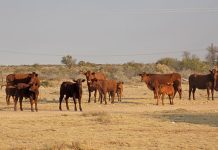Asthma, eczema, COPD (chronic obstructive pulmonary disorder), nervousness and swelling – these ailments may seem unrelated, but they can all be caused by an allergy. When a horse is exposed to allergens, its body releases antibodies, which are proteins designed to neutralise them and other antigens. A battle then takes place in the horse’s body between the antibodies and the allergens and the “peacekeeping force” has to step in. Comprised of histamine and other chemicals from the surrounding cells, these peacekeepers are responsible for bumps, coughing, skin eruptions or urticaria – all symptoms of an allergic reaction.
The causes can vary from a change in the horse’s diet to a change in his environment. However, a change in bowel bacteria is usually the most common cause. The best course of action to take with a skin eruption is to feed the horse a good probiotic or even half a cup of fresh natural yoghurt once a day until the symptoms have cleared. Raw honey is another remedy for hay fever-like symptoms. Feed the horse two tablespoons on a little bread every day. If you have many horses and are unable to give just one of them this remedy, you can dilute the relevant amount per horse in 5â„“ warm water (not hot, as this destroys the beneficial properties) and mix in with the feed.
Environmental changes, as mentioned previously, can also cause allergic reactions. An example of this would be changing the bedding from shavings to straw. The horse can react by becoming highly distressed and can experience facial swelling. If you suspect that bedding is the problem, river sand is an option. Not only is it economical, but it’s easy to maintain and to dispose of. There are also several home remedies to ease the symptoms. Find a homeopath to make up one of the following: Apis Mel: for when a cool touch is needed. Urtica: for when your horse would be more comfortable with warmth. H erbs: feed 30g to 50g of burdock. 30g to 50g of cleavers and dandelion issue salts: Nat Sulph. A horse with COPD should be put into an airy stable or let out into a small paddock (with a rug in winter). Slightly dampen the teff or hay bedding with Golden Products’ Care. A natural antiseptic such as tea tree oil can be topically applied, while lavender oil also works wonders. Often massaging the large muscle groups after exercise will help restore the horse’s circulation, especially after long rides and help the body rid itself of toxins. Remember to walk your horse for 20 minutes after a massage and place a very small amount of molasses in the water bucket to encourage drinking and ensure that the kidneys flush out toxins more efficiently. Remember, however, that no home remedy should take the place of a veterinarian’s advice. – Kim Dyson (082 888 6511)








